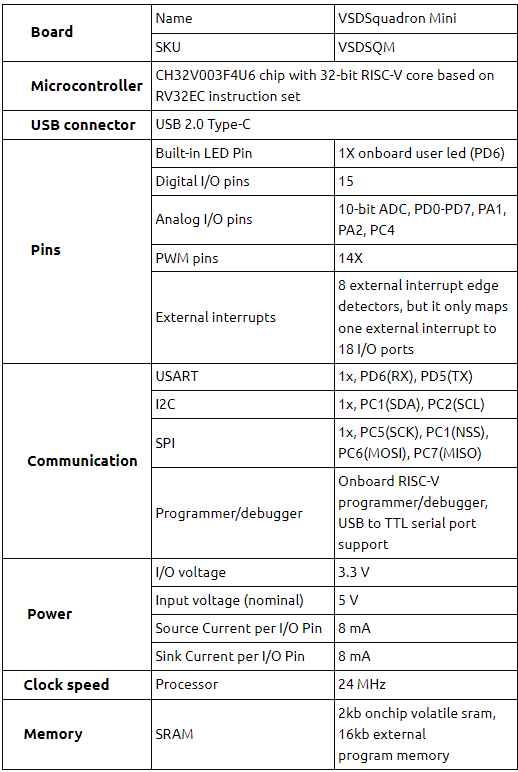VSD - SoC Design of the PicoRV32 RISCV micro-processor
Overview
In this course we take the chip forward and implement using end-to-end opensource EDA tools, and all on efabless cloud. What does this mean to us? It means, you can start innovating on a design, build RTL and do synth/PD/LVS/DRC all using opensource EDA framework and not pay a single penny for license.
The big question How is this possible?
- Run a full physical design flow from RTL design to GDSII, making it ready for tape-out.
-
For freshers, this course will make them industry ready and might increase their chances of getting placed or work for tier-1 company. Assignment submission is a must.
Objective
- Introduction to webinar
-
efabless interactive tutorial
- Introduction to webinar and SPI design selection for physical design
- Introduction to efabless platform and webinar agenda
- LIVE QnA with participants and steps to login to efabless marketplace
-
CloudV interactive tutorial
- Introduction to CloudV application
- Steps to synthesize to target process and export to open-galaxy
- Steps to import synthesized netlist into open-galaxy
- Synthesis flow interactive tutorial
- Steps to start synthesis flow tool and run synthesis
- Pin arrangement UI and automatic grouping of vectors
- Few tips on pin-placement and floor-planning chip
- LIVE QnA with participants regarding pacement and STA
- Routing post-route STA and LVS check
- LVS & DRC
- Steps to fix LVS, Magic short-cut keys and run DRC
- LIVE QnA with participants on LVS and steps to fix DRC
- DRC cleaning steps LIVE and QnA with partcipants on DRC
- LIVE QnA with participants about future of qflow and efabless
- Full chip integration in open-galaxy
- Steps to create a new project for floorplanning and integration
- Steps to populate layout from library manager and select SPI block
- Steps to select, generate copies and arrange pad frames
- Steps to abut pads and ensure pad-frame is DRC clean
- Signal routing
- 'reset' signal routing steps
- sck, csb, other signal routing and DRC clean step
- Dynamic power estimation and power routing
- Tie-down unused inputs, add substrate contacts and antenna diodes
- Add pin labels, review completed layout and final LVS check
- Challenge description and mode of submission
Audience Profile
- Anyone curious to know end-to-end aspects of chip designing i.e from SOC design to tapeout, which involves lot of steps like placement, routing, clock tree synthesis, DRC cleanup, LVS fixing
- Anyone curious to know how to achieve all of above using all EDA open-source tools. Not a single penny to be paid as license fee
- Anyone who wishes to innovate, implement and submit a paper on any design, implemented using open-source tools
Prerequisites
- Knowledge about previous course "VSD - Making the Raven chip: How to design a RISC-V SoC" is nice to have, but not must to have as this course focuses on Physical design concepts, like synthesis, placement, routing, DRC, LVS and tapeout needs
- Knowledge about clock tree synthesis/STA/custom layout is nice to have and can be taken from existing VSD courses Udemy. Take up the courses "VSD - clock tree synthesis", "VSD - Static timing analysis" and "VSD - Custom Layout" on Udemy
Tools Used
Qflow – Tool chain (like Yosys, Graywolf) for complete RTL2GDS flow
Buy the course :
Presentation of the video courses powered by Udemy for WordPress.

